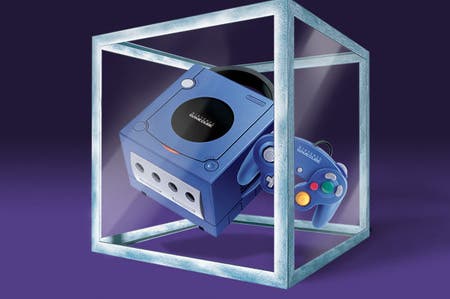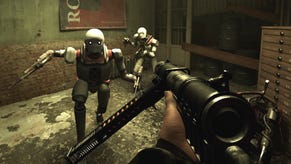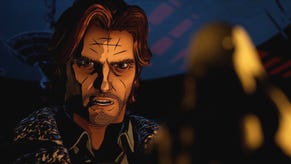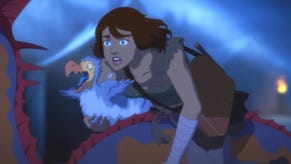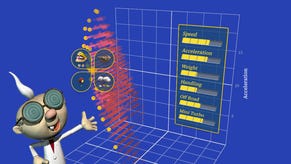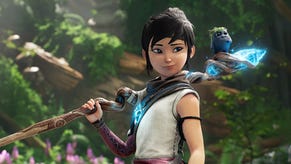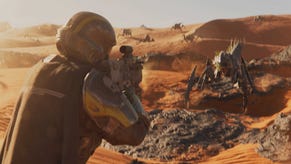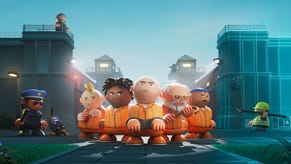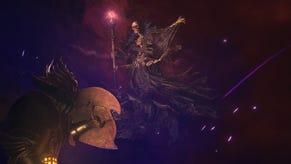GameCube celebrates 10th birthday in the UK
Nintendo's purple wonder, one decade old.
Nintendo launched its fourth major home console 10 years ago today in Europe. A decade ago, the GameCube was born.
The console launched in a blaze of excitement flared up by a pre-emptive pre-launch price cut. The GameCube launched in the UK for £129, in either purple or black.
Nintendo's launch line-up included the often overlooked Luigi's Mansion, the beautiful water physics of Wave Race: Blue Storm and the best version of a Hoth level ever in a Star Wars game, found in Factor 5's Rogue Squadron 2: Rogue Leader.
Sales started briskly, with 75,000 consoles shifted in the UK during the GameCube's first two days on sale (PlayStation 2 managed 40,000). But the console would spend the majority of its life in third place.
The GameCube eventually notched up a total of 21.74 million sales, a little behind the Xbox, Microsoft's more powerful first console effort (24 million sold). But both would always trail the already-ingrained PS2 (a whopping 153.6 million sold).
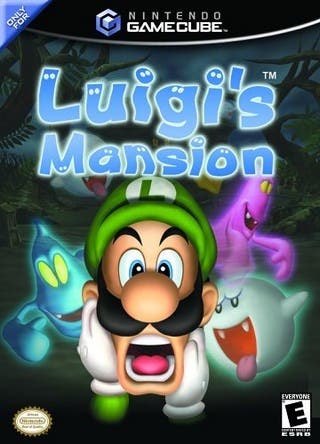
The console launched without a Mario title in tow - Super Mario Sunshine followed some months later and achieved commercial success, but fainter critical praise than its N64 counterpart.
Still, the console served as Nintendo's last great period of ingenuity for fresh core franchises: the aforementioned Luigi's Mansion (whose 3DS sequel earned cheers at Nintendo's E3 press conference last year upon its announcement), Pikmin and its delightful sequel Pikmin 2, and the bizarrely addictive Animal Crossing (originally launched in Japan during the dying days of the N64, but then hastily re-released on 'Cube months later).
And while internet message boards initially derided the cartoonish graphics of Zelda: The Wind Waker, time (and sales figures) now hold it as one of the series' finest hours.
Nintendo-sponsored Retro Studios was busy putting itself on the map re-inventing the Metroid series, with the first two entries in the Metroid Prime trilogy offering some of the console's deepest experiences.
The GameCube era saw the controversial sale of Rare to Microsoft, following the disappointing launch of Star Fox Adventures, but a draw up a closer relationship with Capcom. The much-lauded "Capcom Five" deal gained Nintendo initially-exclusive titles such as PN03, Viewtiful Joe, Suda 51's Killer7 and Shinji Mikami masterpiece Resident Evil 4 - a game so good it has been ported to pretty much every platform since.
The deal even spawned a pervasive online rumour that Nintendo was set to buy Capcom in a "megaton" announcement, although the entire episode was a widely-spread internet myth.
Every home console has its own selection of wacky Nintendo accessories, and the GameCube was no different. Nintendo gingerly dipped its toes into the internet era with the console's Broadband Adaptor add-on (usable with Phantasy Star Online and little else), had players shouting at their TVs to control Mario Party 6 and pinball strategy mash-up Odama, hit life-size bongos to control Donkey Konga and tried to convince gamers to hook up their Game Boy Advances with Zelda: The Wind Waker to spend more time with Tingle.
